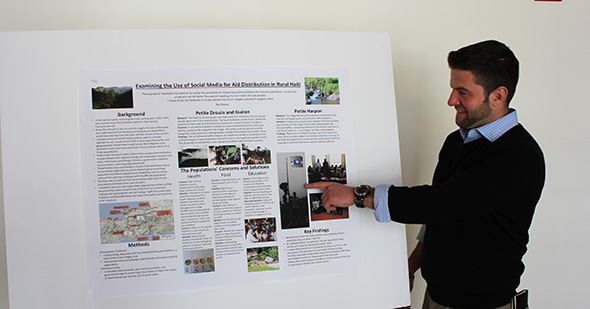
- About
- Global Learning
- Research
- Partnerships & Programs
- Travel
- News & Events
Back to Top Nav
Back to Top Nav
Back to Top Nav
Back to Top Nav
Read the full story by Zach Williams, published in The Graduate Forum.

In October 2012, Ron Bucca, a student in Dartmouth’s Masters of Arts in Liberal Studies program and an Army veteran, traveled to Haiti with a desire to listen and learn. A month later, Bucca came back with a simple conclusion about international aid efforts in the tiny country.
“We just need to listen. So many good resources go to waste because plans are made too far from the communities they’re intended to help.”
It might seem simplistic, but for a country facing so many challenges, simplicity can be a boon. Haiti has received an incredible amount of international aid money—over $3 billion dollars has poured in since the earthquake in 2010—and yet it remains the poorest country in the Western Hemisphere. For opponents of international relief, these statistics act as validation for pessimistic ideas like “over-dependence.” For Bucca, they suggest something else.
“It seems like the mainstream model for aid is really top-down. Theories are hatched in major institutions, researched in far-away med schools and labs, and polished in high-level meetings. Then they’re packaged for export to a place that doesn’t remotely resemble the places they were born in. Without input or feedback from the population that will use the items, things such as maintenance, practicality, or cultural nuances are ignored and make the aid ineffective.”
So, Bucca used $1,000 in personal and research funding to travel to the island nation this fall with a simple question.
“I just wanted to ask: What do you need help with? and How can we help?”